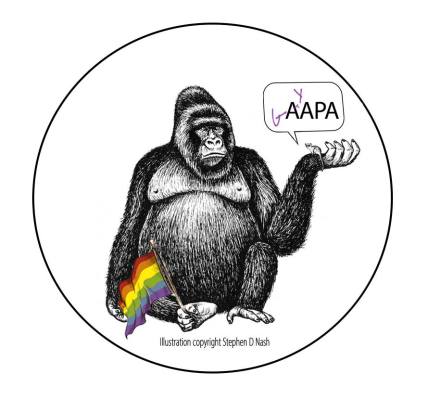If you haven’t seen, the AAPA Executive Committee issued an open letter with a call-to-action in response to the the Black Lives Matter movement:
An Open Letter to Our Community in Response to Police Brutality Against African-Americans and a Call to Antiracist Action
As a society of scholars committed to the study of human variation and diversity, the AAPA stands firmly with the people, organizations, and institutions protesting the recent killings of George Floyd, Ahmaud Arbery, Breonna Taylor and Tony McDade (among many, many others). Alongside the disproportionate deaths from COVID-19 occurring in Black, brown, and Indigenous communities, these fatalities stem from the systemic racism embedded in U.S. society and institutions. We are committed to using our work to dismantle the systems that have brought us to this painful place today.
Our knowledge of human biology, variation, and history shows that race does not have roots in biology but in policies and practices of colonialism and oppression. This fact must be broadcast widely, loudly, and frequently until it is common knowledge.
AAPA also recognizes that the discipline of biological (physical) anthropology played a central role in establishing these racist and discriminatory systems. Some of the founding and prominent leaders of physical anthropology used their research to justify policies that led to the inequity, oppression, and violence that continues to occur against Black, Indigenous, and other People of Color in the United States today. One of our missions as an organization, which is important to restate here, is to counter the impact of harmful work done by our professional predecessors and to call out scientific racism today.
To the public:
The AAPA welcomes engagement with outside organizations. We are uniquely positioned to provide the scholarly, scientific, and history-of-science context of racism.
Many of our members have both the knowledge and the communication skills needed to effectively write Op-Eds, develop workshops on human variation and racism, and to engage in other forms of speaking truth to power. Please contact members of our Executive Committee or the Committee on Diversity if we can assist you with your mission.
To our members:
We should not only be the disseminators of information about human variation and its disjunction with race/racism. As the academic discipline that provided a seemingly biological justification for colonialism, slavery, and continued oppression, it is on our shoulders to lead the way to a better future. This is a call-to-action at organizational, institutional, and personal levels. In order to have any credibility and effect change, we need to have accountability and action within our own profession.
Below we offer specific, actionable ways to start moving forward together. We ask our members to advocate for change in their own institutions to revise the policies and procedures that perpetuate discrimination. Decolonize your teaching. Center marginalized voices in your classrooms, at meetings, and as editors, reviewers, and administrators. And most of all, listen to your colleagues and students who are Black, Indigenous, and People of Color; give them space to speak, to act, to exercise their judgment. They have had to edit themselves for too long.
Please, do not forget to take care of yourselves and each other. Check in on your colleagues. Avail yourself of the resources below and at physanth.org if you are experiencing trauma. Reach out to AAPA board members or Committee on Diversity members with ideas and concerns. Stayed tuned for opportunities to build from the outrage of recent days. And commit to our part in a better future.


